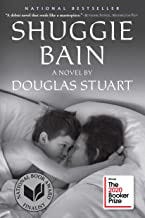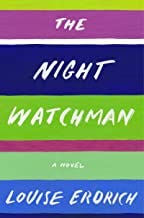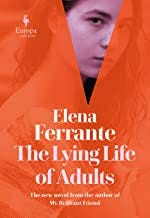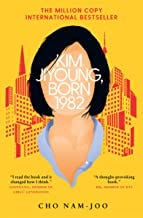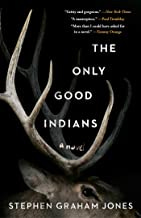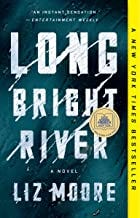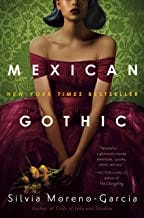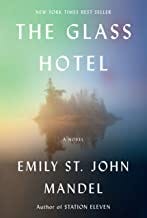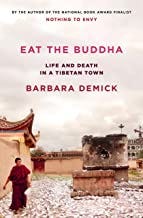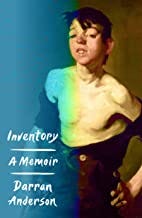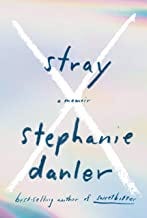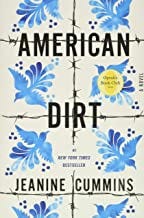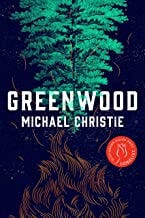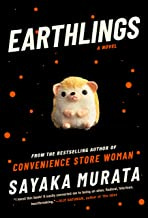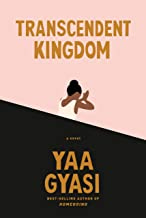Dear friends and family,
As the first anniversary of this fledgling newsletter approaches, I thought I’d do a repeat of last year’s inaugural essay, in which I shared a list of books that would make a great gift for almost anyone on your list (YMMV!).
Like I said last year: it is a known fact that a good book is the best kind of gift.
And while I’ve already shared a few of these books in previous dispatches, I’m sharing them again here. Sorry about the repetition.
If you’d like a more personalized recommendation about which book might be a great gift for someone in particular, please reply and we’ll chat :)
So, let’s get into it!
My Favourite Books of 2020
The New Wilderness by Diane Cook
I’m still thinking about “The New Wilderness”, and I feel compelled to recommend it to you even after telling you all about it here.
This is a great book for people who are interested in: camping and outdoor adventures, The Sixth Extinction by Elizabeth Kolbert, the landscapes in both Blade Runner films, or McCarthy’s The Road (minus the nightmares).
Shuggie Bain by Douglas Stuart
I read this book as soon as it was released, and was really happy when it won the Booker Prize. Also a book I’ve discussed in a previous dispatch, “Shuggie Bain” is ideal for readers who may be interested in how the end of the coal era impacted normal people in Scotland, or to anyone partial to profoundly affecting memoirs. It spares nothing in its raw portrayal of a tumultuous childhood for a boy with an alcoholic mother.
The Night Watchman by Louise Erdrich
A special book that I discussed here, “The Night Watchman” is the kind of book you curl up with in front of a fire, and read late into a dark and stormy night. Bonus if you like owls.
The Lying Lives of Adults by Elena Ferrante
For anyone who enjoyed Ferrante’s Neapolitan novels, this is a must-read. I discussed this book here. This novel is a treat for someone who feels a void after reading Sally Rooney novels, loves stories about how powerful and clever teenage girls are, is open to a take on Federico Fellini films but in a novel form, or wants to feel what it’s like to zip around Naples in a car with the wind in your hair.
Kim Jiyoung, born 1982 by Cho Nam-Joo
This seemingly-ordinary novel is chilling and somewhat devastating. A Korean woman's life is described as she fights to build a career in a deploringly and unmercifully sexist society. Slowly but surely, she gives up on all the dreams she once had as a child. She pays the price for being a woman and a mother.
For fans of one of my favourites of 2016, The Vegetarian by Han Kang, or even folks who liked Convenience Store Woman by Sayaka Murata.
The Only Good Indians by Stephen Graham Jones
Turns out that I read a lot of horror this year, unwittingly. This is a really cool book that I recommend even if you don’t think you like horror books. I wrote about it here, and think it’s a treat for folks who like books that feel like a movie.
Long Bright River by Liz Moore
(Mentioned here) This is a detective novel and a family story, heavily soaked with the pain inflicted upon families by the opioid crisis, multiple-generations deep. I liked the pace of the story, and I loved the narrator, who is a cop in Philadelphia. This is heavy reading but ultimately a great book.
Mexican Gothic by Silvia Moreno-Garcia
Gotta love that the title of the book is its genre, and how that really tells you everything you need to know before reading it. Dedicate some time to it, though. The second half won’t easily let you pry yourself away once you’re into it.
The Glass Hotel by Emily St. John mandel
I keep telling you about this book, so you might be tired of hearing about it by now. Many of you will argue that it isn’t as good as “Station Eleven” (which I included here), and you’d be right. However! This is one of my favourite books of 2020 because it feels perfectly suited to this year. It’s a nice antidote to confinement, to dread, and fits perfectly for anyone who, like me, has felt in the mood for something broody and atmospheric.
Eat The Buddha: Life and Death in a Tibetan Town by Barbara Demick
From the author of Nothing to Envy: Ordinary lives in North Korea, a book that told the stories of ordinary people in North Korea and contextualized their situation within historical and economic circumstances.
This is a book about Sagwa, a town in Tibet. Rather than focusing on ordinary lives, though, this book instead outlines the lives of some local and politically significant people: a Mei king's daughter, a lesser llama. It's an intriguing book about Tibet that feels timely.
Inventory: A Memoir by Darran Anderson
This book is so engrossing, and the tale goes much deeper than it appears when you begin. Told as a series of vignettes into Anderson's childhood and youth in Derry, Ireland during The Troubles, the narrator tells the story of various characters, mostly family members.
Over the length of the book, each character reveals more of themselves themselves to the reader through these vignettes. Some parts of the story are amusing, some terrifying, many are profoundly affecting, and the overall effect of the book is of a wider scope than you'd expect from a memoir: it's historical non-fiction interwoven with a family history.
The writing is beautiful, and while at times the pace may seem slow, the entire effect is all-encompassing. I adored reading this, was sad when it was over, and have been thinking about it for a long time after reading it.
Wild Cards
Stray by Stephanie Danler
I like Stephanie Danler’s writing. I also like her on Instagram, where she shares poetry she’s reading and talks honestly of the banalities of her life as a writer.
“Stray” is a memoir. It’s Danler's coming-of-age story, surviving family addiction and abandonment. Her writing pulls you in. Not everyone will love this but some of you might.
American Dirt by Jeanine Cummins
Incredibly well paced. I say that seriously. The pace of this novel is so good. Every page something new happens. Every page a new character is introduced, or another aspect of the plight of migrants vying to make it to the United States is revealed.
The premise of the book is that we’re on a journey to America with a family fleeing Acapulco after a cartel takes over the city and threatens their lives.
This book is the story of migrants’ journey to America: riding on cargo trains, surviving robbery and rape, making friends, escaping their enemies' wrath, and ultimately sacrificing literally everything for survival.
So why is this in my wild cards? Because everything that could go wrong does, I would argue gratuitously so. This book sensationalizes the violence and pain of migrants without offering much by way of salvation or empathy.
Overall, the book lives up to the hype but deserves the criticism it has received.
Greenwood Michael Christie
I wrote about “Greenwood” here, but I will add that if you’ve ever thought about attempting to read the Pulitzer Prize-winning The Overstory by Richard Powers, I recommend that you just read this book instead.
Post script mentions
Hard to classify: Earthlings Sayaka Murata
Convenience Store Woman is one of my favourite books, so I was looking forward to reading this follow-up by Sayaka Murata. I very surprised when I read this book.
It’s totally messed up. Not in an approachable way, like most horror books you read, but in a crushingly original and f*cked up way. It is not for the faint of heart, as it includes incest, child abuse, cannibalism, and cultism. This novel is a weird and scathing critique of contemporary society.
A disappointment: Transcendent Kingdom Yaa Gyasi
I couldn’t wait to dive into this novel given how stunningly good and totally unforgettable Yaa Gyasi’s debut novel Homegoing was. “Homegoing” is an indispensable and nearly flawless novel.
Overall, I liked the bits that examined the role that religion played in the protagonist’s life, but I wish they’d been more developed. I loved the hearing about Gifty’s relationship with her mother, but it left me wanting that to be the story of the novel.
Gyasi’s writing felt a little belabored in some parts. And the jumping around in the narrative didn’t resonate with me, mostly because it made the story feel like it kept stalling.
The cover was my favourite part.
PS. If you’ve read it: Did you find that the book was a bit inspired by Ngozie Adichie’s early novels?
Thanks for reading! I hope you find a few that you like in there. The lockdowns gave me a lot of extra time to read this year, and so I had a lot to choose from. Did you read more books than usual this year?
As always, I’d love to hear from you. What was the best book you read this year? Which books made it on your list to Santa?
Happy reading,
Vero Best





